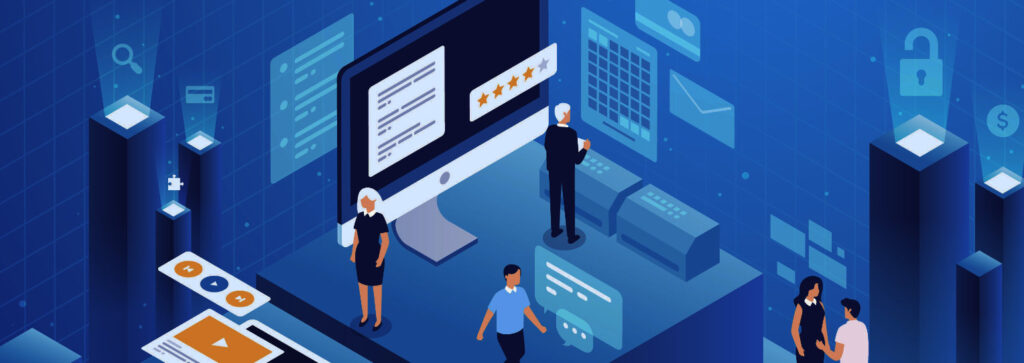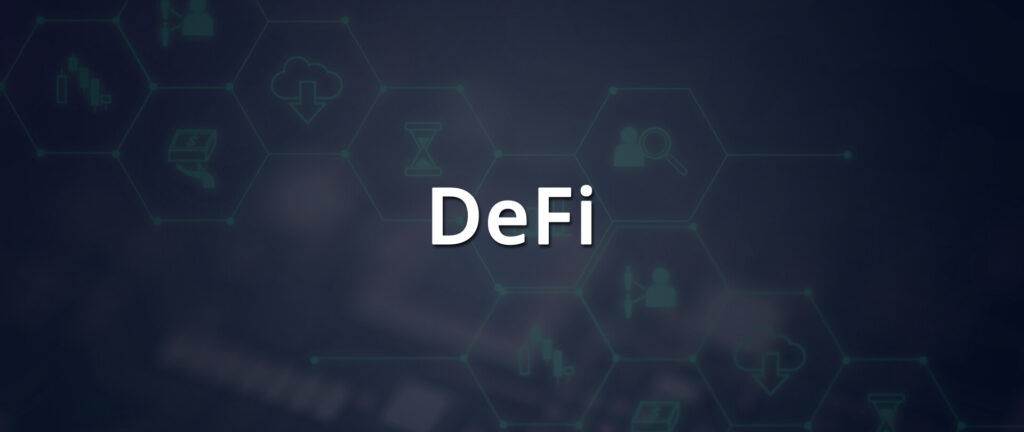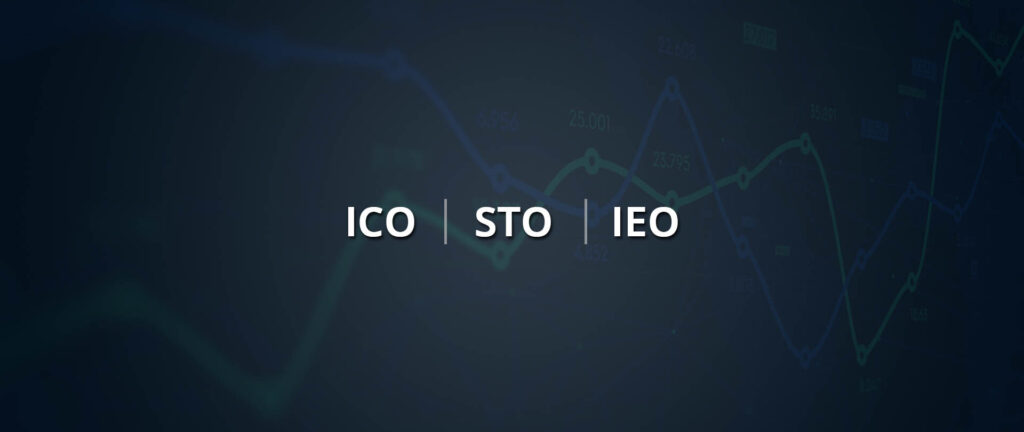User participation in DAOs increased during 2021, with the number of DAO members reaching around 1.3 million in December 2021. From the beginning of the year, the number of DAO members has increased 130 times. This tells us that self-governance models are preferred by users, and thereby, we can see an increase in the rate of adoption of DAO models, such as in DAO-enabled NFTs. It focuses more on users’ interests by distributing regulatory power among the members and powering futuristic NFT-based concepts such as P2E games and metaverse marketplaces. Let’s look at how DAO-enabled NFT platforms encourage more creators, NFT collectors, and investors to participate in the NFT market predicted to reach $41 billion at the end of 2022.
- What is a DAO?
- What are DAO-enabled NFT platforms?
- How are DAO-enabled NFT platforms beneficial for users?
- Voting Power in DAO-enabled NFT Platforms
- Future of DAO-enabled Platforms
What is a DAO?
A Decentralised Autonomous Organisation (DAO) is an autonomous organization regulated through a set of rules, or smart contracts, embedded in computer programs. It is a community-led organization with no central authority. It exists and runs on a blockchain ecosystem and is completely transparent and decentralized.
It is not a formal contract but a common goal that ties the members of a DAO together. Through DAOs, individuals who are unfamiliar with each other, but believe in the same cause, can use the internet to communicate, share values, and organize and regulate themselves in a trusted environment. DAOs end the organization hierarchy and automate the decision-making progress by allowing everyone to vote on operation decisions, thereby contributing to the management of DAOs.
Based on the technology, mode of operation, and project structure, DAOs are reinforced across the following major categories:
- Operating systems: Standalone platforms that help companies create and establish their own DAOs.
- Protocol DAOs: Leverage voting mechanisms to implement decisions related to protocol changes.
- Investment DAOs: Support pooling and investment operations for decentralized finance (DeFi) projects.
- Service DAOs: Allow companies and individuals to regulate talent hunting and acquisition operations.
- Collector DAOs: Regulate NFT platforms that work to provide complete and fractional NFT ownership.
- Social DAOs: Support decentralized social media platforms.
- Media DAOs: Decentralized news and information aggregators that work for consumers’ interests.
What are DAO-enabled NFT platforms?
NFT platforms with DAO are similar to traditional NFT platforms except for how the platform operates. Let’s highlight the difference between a conventional and a DAO-enabled NFT platform.
Conventional NFT Platforms
Conventional NFT platforms give the owner complete authority to make decisions concerning the platform. Here, NFTs are implemented on the blockchains with the help of smart contracts. Since each token minted on the blockchain protocol carries unique information, NFT platforms or marketplaces cannot be centralized. However, the founders of the blockchain protocol still hold sovereignty over decisions such as establishing rules, launching features on the blockchain, and implementing upgrades.
For instance, the Ethereum protocol does not give individual users any decision-making rights. Neither can users participate in deciding the protocol’s future, nor can they vote to support or oppose any decision.
This is precisely what NFT platforms enabled by DAOs change.
DAO-enabled NFT Platforms
DAOs bring a distributed decision-making system to the platform. It automates the governance of the platforms and allows users to actively participate in directing the future of the platform(s). Instead of asking the stakeholders to trust a central authority, DAO distributes the power to the members running the NFT platform. More people participating in the development of DAOs allows DAO-enabled platforms to deliver prompt and efficient solutions.
To continue with the example of Ethereum mentioned above, DAOs redefine the concept of decision-making and shift the power to make major decisions, e.g., feature launches, upgrades, tool expansion, etc., from the original creators to all the members. The voting power of the members varies according to the number of tokens they own.
The main idea behind most DAOs is to create decentralized, autonomous organizations where like-minded people can work together. Compared to traditional organizations, DAOs offer better transparency while eliminating human error and manipulation.
Here are some important differences between a DAO and a traditional organization:
- Traditional organizations are hierarchical, whereas DAOs are flat and 100% democratized.
- Implementing changes requires voting in a DAO but depends on the structure of traditional organizations.
- Services in DAOs are automated. Services in traditional organizations require human resources.
- In a DAO, all activities are transparent and public compared to private and limited to the public in a traditional organization.
- DAOs tally votes automatically, leaving virtually no room for human error and/or manipulation, which is common in traditional organizations that handle votes manually.
How are DAO-enabled NFT platforms beneficial for users?
A DAO fundamentally works as a decision-making tool for an NFT platform and makes the platform more beneficial to users.
- DAO transfers the ownership rights from a central, higher authority to the hands of the members.
- With DAOs, users get the right to review policies relating to the moderation of content, auctions, asset policies, etc., on the platform.
- DAOs own smart contracts and digital assets to bring autonomy to any NFT platform while allowing users to stake their NFT and the native token to generate rewards.
- Users continue to control their NFT even when they’re staked or supplied to the liquidity pool.
- With DAOs, the community can propose and vote on different decisions and autonomously decide the direction of the platform.
Income & Rewards
Gaming-based NFTs are particularly gaining popularity and present numerous income and reward opportunities for users. Platform users can propose opportunities such as NFT staking, where NFT holders can earn passive income by staking their NFTs into the liquidity pool without transferring the ownership of NFTs to others.
NFT Battles
NFT platforms collaborate with dApps to offer users the feature of NFT Battles. NFT holders stake their assets against other NFT owners. Other users participating in the battle can stake their NFT tokens to support their preferred NFT and earn rewards from tokens or digital assets. There are five stages to a battle on an NFT platform: NFT staking, voting, NFT pairing, battle, and result.
NFT Yield Farming
Users who hold NFTs and the native token of an NFT platform can participate in yield farming by pitching their eligible assets and directly staking them into the liquidity pool of the platform. The rewards are provided in tokens and limited editions of NFTs. When regulated through a DAO, the platform can maintain transparency across the whole process of yield farming while regulating a fair distribution of rewards.
Review Policies
All users are granted equal access to review the rules and policies relating to the platform and propose any changes and/or modifications. With DAOs, users also get the opportunity to participate in marketplace events such as sales, launches, community promotions, etc.
Voting Power in DAO-enabled NFT Platforms
Users can propose any changes to the underlying governance of an NFT platform via voting, which decides on a variety of issues, such as
- Dates and policies of live auctions.
- Token supply and tokenomics.
- Features upgrade on the platform.
- Replacement or addition of members in the security council.
- Addition of new assets.
The voting usually follows three simple steps:
- Proposals: any member can propose a new initiative or change in the existing DAO on the platform. After an informal discussion, the proposal is officially submitted to the DAO.
- Votes Submitted: Official (on-chain) voting happens on the platform and gets recorded on the blockchain. The members cast their votes by depositing their native tokens.
- Result: The results are announced and immediately implemented via smart contracts
A DAO allows every user to participate in decision-making activities and determine policies for the community’s future. This model works to bring uniformity, equality, and transparency to the governance of NFT platforms.
Future of DAO-enabled Platforms
DAOs—both as a concept and technology—can revolutionize how we work by encouraging member-owned communities and eliminating centralized leadership. Decentralized autonomous organizations can support anything–from NFTs to cryptocurrency trading platforms. By creating community-owned NFT marketplaces, DAO-enabled NFT platforms represent the next evolutionary step in the development and adoption of blockchain. They are a thriving space, and modern enterprises can stand out in the digital landscape by making the most of this opportunity.


